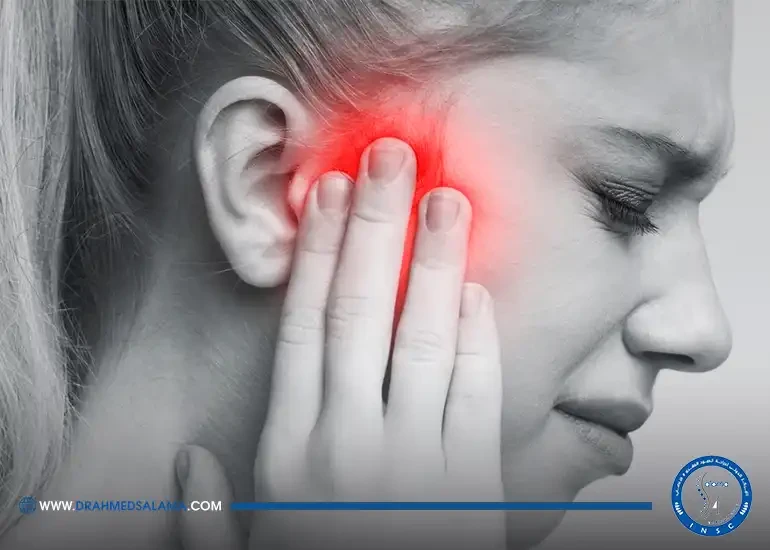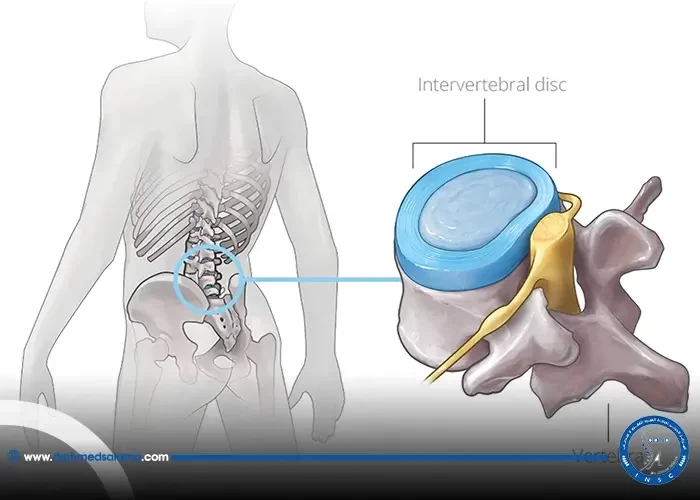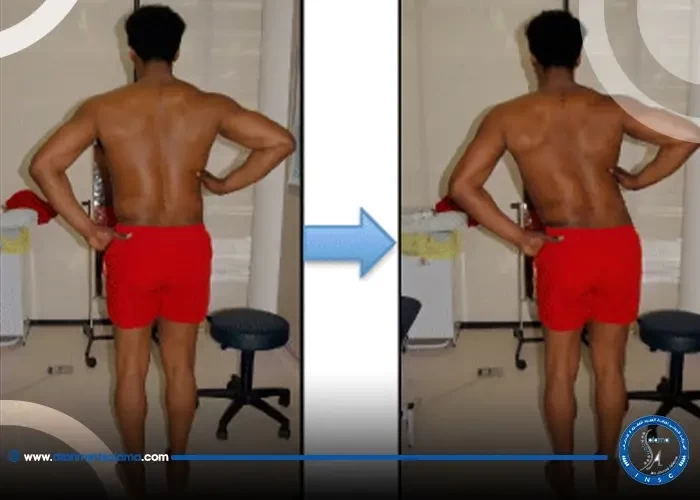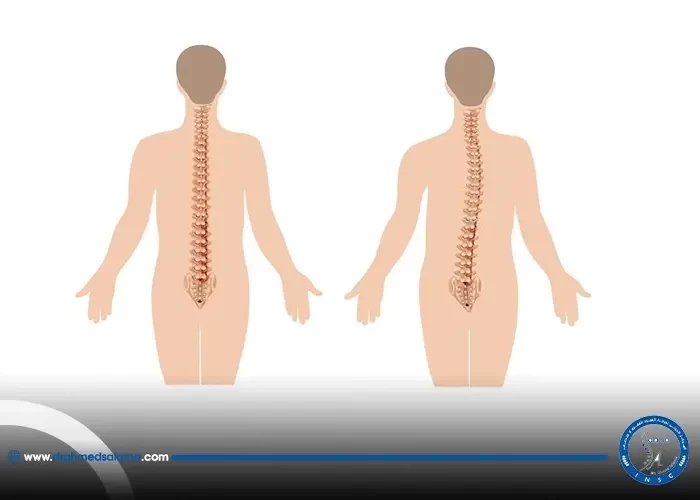Nasr City, 52 El Tayaran Street, in front of the Health Insurance Hospital

Symptoms of maxillary nerve inflammation

Symptoms of mandibular nerve inflammation are painful problems that can affect the patient's quality of life and ability to speak and chew normally. Sometimes, it can spread to include maxillary nerve inflammation, which increases discomfort and raises many questions, specifically: Is maxillary nerve inflammation dangerous? What are the symptoms of mandibular nerve inflammation?
In this article, we will learn about the symptoms of mandibular nerve inflammation in detail, explaining the causes of this inflammation, the severity of the condition, and the methods used to treat mandibular nerve inflammation. We will also explain why Dr. Ahmed Ibrahim Salama, a consultant neurosurgeon and spine surgeon, is the appropriate choice for treating these cases. Just keep reading to the end.
Symptoms of mandibular nerve inflammation
Symptoms of mandibular and maxillary nerve inflammation vary from one case to another depending on the severity of the inflammation and the extent of nerve involvement. They may include sudden or intermittent symptoms that affect the ability to chew and speak. Symptoms of mandibular nerve inflammation include:
Intermittent bouts of tingling or mild pain.
Sharp, throbbing pain in the lower jaw that worsens with chewing, talking, smiling, brushing teeth, touching the face, or even exposing the face to wind.
Tingling or loss of sensation in the lips and chin before or during the pain attack.
Difficulty moving the jaw or speaking due to pain.
The severity and frequency of pain attacks increase over time.
Because dealing with the symptoms of mandibular nerve inflammation requires an accurate diagnosis and an appropriate treatment plan to relieve pain and restore normal jaw function, it is recommended to contact Dr. Ahmed Ibrahim Salama, a consultant neurosurgeon and spine surgeon, to schedule a personal consultation and ensure accurate and safe follow-up.
Causes of Mandibular Neuralgia
Some people suffer from inflammation of the mandibular or maxillary nerve, which is one of the branches of the fifth cranial nerve, also known as the trigeminal nerve. This is the largest cranial nerve that branches directly from the brain and is responsible for transmitting sensation from the face to the brain. It is divided into three branches: the optic nerve, the mandibular nerve, and the maxillary nerve. The initial cause of inflammation of one of these nerves may not be precisely determined, but it is often the result of pressure on the nerve at the base of the brain. However, other possible causes include:
Pressure on the nerve due to an aneurysm or a small tumor.
Immunological diseases such as multiple sclerosis may affect the nerves.
Facial injuries that affect the myelin sheath that surrounds nerve fibers.
The impact of previous surgeries in the jaw area on surrounding nerves.
Direct injury to the trigeminal nerve as a result of trauma or accidents.
Because knowing the exact cause helps develop an effective treatment plan and alleviate the symptoms of inflammation of the mandibular or maxillary nerve, it is recommended to contact Dr. Ahmed Ibrahim Salama to schedule a specialized consultation and follow-up.
Is inflammation of the mandibular nerve dangerous?
Many people wonder, is inflammation of the mandibular nerve dangerous? Especially with the appearance of symptoms of mandibular or maxillary nerve inflammation. While mandibular nerve inflammation is not dangerous in and of itself, it does not cause death. However, it can become dangerous if not treated promptly, as this can lead to worsening pain and more serious complications that may affect the patient's ability to perform daily activities.
Therefore, if any symptoms of mandibular or maxillary nerve inflammation appear, do not hesitate to consult Dr. Ahmed Ibrahim Salama, a specialist in treating jaw and facial nerves, to ensure an accurate diagnosis and a safe and effective treatment plan.
Treatment of mandibular nerve inflammation
Treatment for mandibular nerve inflammation depends on identifying the underlying cause and the severity of the symptoms each patient suffers from. Treatment primarily aims to relieve pain and improve the ability to speak and chew normally. Treatment methods used include:
Medication
The doctor often begins with medication to relieve pain and control inflammation. This includes:
Anticoagulants (anticonvulsants): These help reduce nerve irritation and relieve painful attacks.
Muscle relaxants: These help relieve jaw muscle spasms associated with pain.
Tricyclic antidepressants: These help modify pain signals and reduce their intensity.
Physiotherapy and Electrical Stimulation
The doctor may recommend physical therapy sessions with a physiatrist. These sessions help activate the jaw muscles, prevent stiffness, and significantly improve flexibility. Electrical nerve stimulation is also used to improve nerve conduction and reduce the severity of pain resulting from inflammation of the mandibular or maxillary nerve. This helps speed recovery and improve the ability to chew and speak normally.
Radiofrequency
If pain persists and medication fails to respond adequately, radiofrequency ablation may be used. It targets the nerve endings and blocks the transmission of pain signals to the brain, significantly reducing the frequency and severity of attacks.
Surgical Treatment
When the previous treatment methods fail, the doctor resorts to surgical treatment to relieve pressure on the affected nerve. Surgical methods include:
Balloon decompression.
Radiosurgery, also known as Gamma Knife radiosurgery.
To ensure the best results and a thorough assessment of your condition, it is recommended to contact Dr. Ahmed Ibrahim Salama to determine a customized treatment plan that suits your condition and effectively alleviates your mandibular nerve inflammation symptoms.
Left mandibular nerve inflammation
Left mandibular nerve inflammation may appear as part of trigeminal neuralgia disorders, causing pain centered on the left side of the jaw and sometimes extending to the lips and cheek. This inflammation is accompanied by multiple symptoms that are not significantly different from the symptoms of mandibular nerve inflammation mentioned above, including sudden or intermittent pain attacks, tingling or numbness, and difficulty moving the jaw or speaking.
Early treatment of left mandibular nerve inflammation is an essential step to reduce the severity of pain and prevent the condition from worsening. A specialist can develop an appropriate treatment plan that includes medications, physical therapy, or advanced surgical interventions.
Because nerve inflammation requires high medical precision and skill, don't hesitate to visit Dr. Ahmed Ibrahim Salama to assess your condition and develop a customized treatment plan that reduces pain and maintains normal jaw function.
Right Jaw Neuralgia
Right jaw neuritis may appear as a form of trigeminal neuralgia, causing sharp or intermittent pain that sometimes extends to the ear, teeth, or cheek. Symptoms are similar to those of mandibular neuralgia, with attacks of tingling or shooting pain that worsen when chewing or speaking. They may be accompanied by numbness or difficulty opening the mouth normally, but they are concentrated on the right side.
Early treatment of right jaw neuritis reduces its severity and reduces the risk of progression. The doctor will assess the source of the pain and suggest an appropriate treatment plan, which may include pain medications, physical therapy sessions, electrical stimulation, or surgical interventions, if necessary.
Maxillary Neuralgia
The maxillary nerve is one of the nerves that branches off from the trigeminal nerve, which is responsible for transmitting sensation from the upper face, including the upper teeth and cheek, to the brain. When suffering from maxillary nerve inflammation, the patient may feel sharp pain or persistent tingling. Symptoms include numbness, intermittent pain attacks, and difficulty moving the jaw or speaking. These symptoms are very similar to those of mandibular nerve inflammation, which can impact daily quality of life.
If you experience any disturbances or symptoms that suggest maxillary or mandibular nerve inflammation, do not hesitate to consult Dr. Ahmed Ibrahim Salama to ensure you protect your jaw function and restore your quality of life safely and effectively.
Why choose Dr. Ahmed Ibrahim Salama to treat maxillary nerve inflammation?
After learning about the symptoms of mandibular nerve inflammation, choosing the right doctor is an essential step to relieve pain and restore normal jaw function. Dr. Ahmed Ibrahim Salama, a consultant neurosurgeon and spine surgeon, is the right choice due to his advantages, including:
Dr. Ahmed Salama has extensive experience in treating various cases of trigeminal neuralgia, including complex and simple maxillary and mandibular nerve inflammation.
He relies on the latest examination and treatment techniques to ensure accurate diagnosis and effective treatment.
He offers a customized treatment plan tailored to each patient's condition.
He provides close follow-up to ensure optimal results and prevent worsening symptoms.
He has a strong medical reputation and positive reviews from previous successful experiences, reflecting his high competence and skill.
In conclusion, mandibular or maxillary nerve inflammation is a painful condition that requires an accurate diagnosis and a comprehensive treatment plan to ensure pain relief and restore normal jaw and facial function. Because early treatment of mandibular nerve inflammation symptoms and the selection of a specialized doctor ensures better results and reduces worsening of the condition, don't hesitate to contact Dr. Ahmed Ibrahim Salama, a consultant neurosurgeon and spine surgeon, to schedule a consultation and receive a comprehensive evaluation and a customized treatment plan that will safely and effectively restore your comfort and quality of life.
What are the symptoms of mandibular nerve inflammation?
Symptoms of mandibular nerve inflammation include sharp or throbbing pain in the jaw, sometimes extending to the lips or chin, intermittent bouts of tingling or numbness, difficulty moving the jaw or speaking, and increased pain with chewing, smiling, or even brushing your teeth. These attacks may become more frequent over time, affecting the quality of daily life.
How do I know if I have jaw inflammation?
Jaw inflammation can manifest with symptoms such as pain or swelling in the jaw, difficulty opening the mouth or chewing, and sometimes redness or warmth in the affected area.






